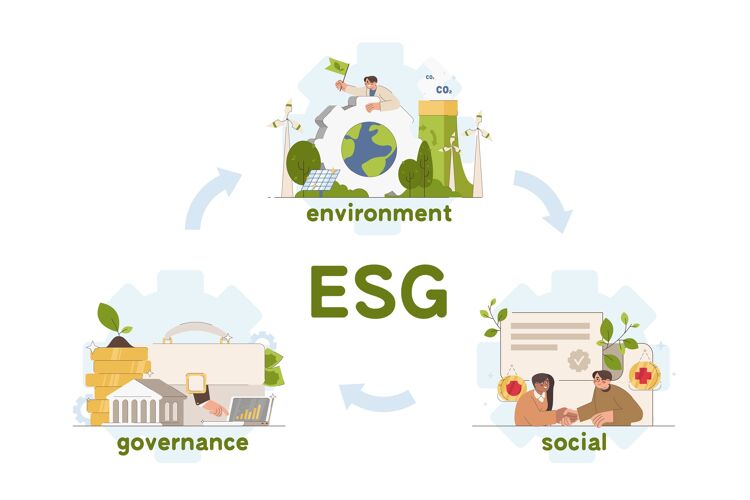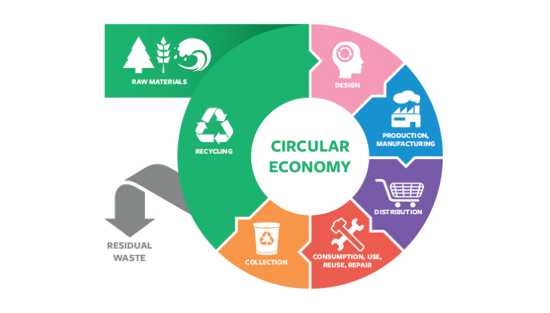Is ESG relevant to small businesses?

Clare Taylor describes what ESG is (environmental, social and corporate) and whether it is relevant for small businesses and the reporting schemes associated.
Firstly, what is ESG? It’s been around for a long time under different names; over time it’s developed from being something slightly fluffy to a way of working that is far more measurable, and ESG reporting is becoming a legal requirement for larger businesses across the world.
The abbreviation is for environmental, social and (corporate) governance. It is used to describe running a business in a sustainable way, taking people and planet into account as well as profit, and is mostly applied to larger businesses for which there are structured systems describing what they should report and how it should be measured. Initially these were voluntary but expected by stakeholders, particularly investors. Now mandatory reporting is increasing, with the aim of it becoming the norm, standards-based and more akin to financial accounting and reporting. In the EU the largest companies come into scope this year for the Corporate Sustainability Reporting Directive, with the information to be published in their 2025 reports. Further standards are under development elsewhere, with global standards aligning.
Aside from mandatory reporting schemes there are several well-established voluntary systems, used by larger businesses to measure and report their own activities. Some certification schemes, such as B Corps, have pricing structures designed to be more accessible to smaller businesses.
There are also ratings systems used by third parties as decision-making tools, often for investors, including stock markets indices such as FTSE4Good which specifically rate businesses according to ESG performance.
Relevance to small businesses
Whereas ratings are perhaps not so meaningful for a small business, and there are not the same pressures for reporting, the concept still holds: a need to find out what's most important to your customers, staff, neighbours and those with a financial interest in your business, such as bankers, insurers and other investors. Then to not only take that into account in your decision-making, but also to make it something you can prove and demonstrate progress with, either by measuring or other means such as capturing changes made, decisions made, or milestones or KPIs met.
Importance to your customer base
This evidence base is becoming more relevant, as the regulatory aspect means that the businesses with reporting obligations need to demonstrate that they are looking downstream, and not just to direct suppliers but also those further down the chain, to assess risks and opportunities related to sustainability.
There is also an element of risk management beyond the legal side. Consumer concerns about climate change, dirty rivers, loss of wildlife, human rights and general fairness can lead to product boycotts or other ways of demonstrating their feelings. Whether you sell directly or indirectly to consumers, understanding and managing any potential risks is self-protection, as well as ethical.
This will involve looking at your own supply chain: you may be paying your workers appropriate wages and looking after them well, but do you know if your suppliers do the same? Do they manage environmental risks, or could they be a risk to your reputation and that of your customers?
Engaging your workforce
Demonstrating that you are managing the important things also helps with workforce engagement.
Employees who feel they are treated fairly and who trust the business for which they work to be taking care of things that matter to them tend to be more loyal and more productive. They can work with the confidence that they are not contributing to the alarming reports they hear on television or see online.
Licence to do business
In the wider context, that of your local community, local authorities and business groups, showing that you are taking care amounts to ‘a licence to do business’ – they will be comfortable with your business being there.
ESG is a journey, not an outcome, and the large corporations are all at different stages. It may be a while before you feature in their sights if they have bigger issues to attend to first. But this allows it to be a journey for small businesses too, and being able to demonstrate you know where you need to go and that you are making progress along the path is good for relationships with customers, staff and everyone else your business affects.
“Cover image by redgreystock on Freepik”
Topics
Recent news

Kodak's 2024 Sustainability Report: A Commitment to a Greener Future
Kodak's 2024 Sustainability Report, "One World, One Kodak," demonstrates a strong commitment to environmental and social responsibility. The report highlights impressive reductions in greenhouse gas emissions (56%) and water withdrawal (31%) and aims for zero waste by 2025. Notably, Kodak is pioneering double materiality assessment in the printing industry, aligning sustainability with financial reporting, and showcasing its products' environmental benefits.

How can printers lower costs on energy usage?
Clare Taylor outlines simple steps for businesses to achieve energy sustainability, focusing on cost savings and staff comfort. It emphasises starting with measuring energy consumption to identify key areas for improvement. Subsequent steps involve managing energy use through behavioral changes and low-cost interventions, like optimizing cooling settings and ensuring equipment is switched off when not needed.

The European Union's circular economy plan
Printing companies must understand the EU's Circular Economy Action Plan (CEAP), part of the European Green Deal. These initiatives drive sustainability, impacting businesses globally, even if not EU-based, through customer requirements. Printers need to be aware of reporting and sustainability expectations to manage risks and retain clients.

A revised look at sustainability in wide format print
Sustainability is crucial for wide-format print, moving beyond marketing to an imperative driven by brands and regulations. Common "eco" claims often mask complexities; true sustainability demands carbon reduction as a core principle. Life Cycle Assessment (LCA) offers data-driven insights for genuine environmental improvement, as demonstrated by UFABRIK's transparent approach.